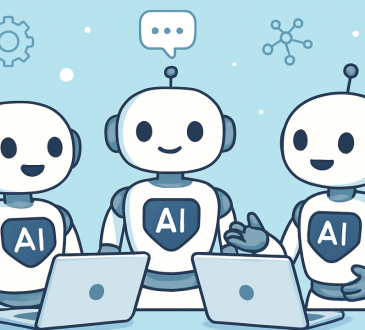
In 2025, artificial intelligence (AI) has become a central force in the financial sector. No longer just a futuristic concept, AI is actively transforming how banks, investment firms, and fintech companies operate. From automating repetitive tasks to offering advanced insights for smarter decision-making, AI is reshaping the financial landscape. Let’s explore the most important AI developments in finance this year, along with the opportunities and challenges they present.
OpenAI Ventures into Investment Banking
One of the most significant moves this year comes from OpenAI, which launched Project Mercury. This initiative is focused on developing AI models capable of performing complex financial tasks traditionally handled by junior bankers.
- OpenAI has recruited around 100 former professionals from top firms, including JPMorgan Chase, Goldman Sachs, and Morgan Stanley.
- These experts train AI to build financial models for IPOs, mergers, and restructuring deals.
By automating time-consuming tasks, banks can boost efficiency, cut operational costs, and potentially redefine traditional banking roles.
AI-Driven Fraud on the Rise in the UK
AI’s power isn’t only in its benefits—it can also be misused. The UK has seen a sharp rise in fraud, surpassing 2 million cases in the first half of 2025—a 17% increase from last year. Total losses exceeded £629 million, with investment fraud up 55% and romance scams up 19%.
Criminals are increasingly leveraging AI:
- Deepfake videos and AI-generated dashboards trick victims.
- Automated messaging spreads scams faster and more convincingly.
Banks are fighting back with AI-driven fraud detection, which helped prevent around £870 million in unauthorized transactions. This shows that while AI can enhance security, it can also make crime more sophisticated.
Goldman Sachs Integrates AI Amid Workforce Changes
Goldman Sachs is embracing AI while reshaping its workforce. Despite posting record profits, the bank has announced workforce restructuring under its “OneGS 3.0” initiative.
Key points:
- AI tools will enhance client onboarding, regulatory reporting, and sales operations.
- Integration will change workflows, speeding up decision-making and reducing repetitive tasks.
- Some job reductions may occur, reflecting a broader industry trend of prioritizing technology over labor-intensive processes.
Regulatory Focus on AI Risks
Regulators are paying close attention to AI in finance. Central banks and financial authorities emphasize that AI:
- Can improve efficiency and innovation.
- Also introduces risks if mismanaged, including errors, bias, or malicious misuse.
Experts recommend a “safety by design” approach: AI systems must be transparent, tested, and monitored closely. At the same time, AI is being leveraged to detect fraud and manage risk, balancing innovation with financial stability.
The GenAI Divide
Generative AI tools like ChatGPT and Copilot are widely adopted, but many organizations are not seeing meaningful returns.
- GenAI Divide: Most companies use these tools for productivity boosts rather than strategic transformation.
- Challenges include complex integration, limited contextual understanding, and misalignment with day-to-day operations.
- Only a few firms have successfully moved from experimentation to using AI for impactful business decisions.
Adoption alone isn’t enough; strategic integration is key.
Investor Caution in a Booming AI Market
The rapid growth of AI has caught investors’ attention. Some AI stocks have surged over 140% in 2025, drawing comparisons to the dotcom era.
- Experts urge caution, focusing on sustainable growth and practical AI applications.
- Avoiding speculative investments helps reduce risks linked to overvaluation and market instability.
Measured optimism is crucial in this fast-moving sector.
Emerging AI Trends in Finance
Looking forward, AI’s role in finance is set to deepen. Currently, over 85% of financial institutions are using AI for:
- Fraud detection
- IT operations
- Digital marketing
- Advanced risk modeling
New trends include:
- Agentic AI – handling complex decisions independently.
- Multimodal AI – analyzing multiple data types at once.
- Federated learning – secure collaboration without sharing sensitive data.
These innovations promise better efficiency, smarter investments, improved customer experiences, and stronger risk management.
Balancing Opportunity with Responsibility
AI’s benefits are immense, but challenges remain:
- Data privacy and security
- Ethical deployment
- Job displacement
- Potential misuse
Financial institutions must adopt AI responsibly, ensuring transparency, accountability, and alignment with ethical standards. Collaboration among regulators, banks, and AI developers is essential for creating a safer, more reliable financial ecosystem.
Conclusion
The integration of AI in 2025 marks a turning point for finance. Automation, advanced analytics, and data-driven insights are transforming operations and decision-making. Yet, this transformation comes with responsibility.
Firms that combine innovation with ethical AI practices are positioned to lead the financial sector in the years ahead. AI is no longer just the future of finance—it’s here today, shaping how institutions operate and how investors, employees, and customers interact with money.




